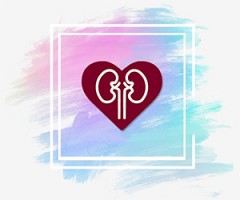Education & Research
Chronic kidney disease (CKD) has become a public health problem due to its increasing prevalence globally and associated high morbidity and mortality.1,2,3 The burden of CKD is more felt in developing countries like Nigeria where there is no health insurance to meet the huge financial demands the disease places on its sufferers and their families.4
Majority of CKD patients in Nigeria present late to nephrologists when they are already uremic and requiring renal replacement therapy (RRT).3 This may be due to both patient and primary physician-related factors. Early referral of CKD patients to nephrologists is key to retarding progression to end-stage renal disease, reducing hospitalization, cost of health care, and improving patients' survival before and eventually after commencement of RRT.5,6,7
Prevention and early detection of CKD are the main instruments for combating CKD in the world today. To this effect, programs have been initiated to actualize this goal. One of such is the World Kidney Day initiative established by the International Society of Nephrology and International Federation of Kidney Foundation marked yearly worldwide for the past 10 years with the primary objective of educating and enlightening the public on prevention and early detection of kidney disease as well as giving support to kidney disease sufferers. Nigerian nephrologists have been actively involved in the World Kidney Day initiative, and there has been an increase in public enlightenment campaigns on CKD.

1. Alebiosu CO, Ayodele OE. The global burden of chronic kidney disease and the way forward. Ethn Dis. 2005;15:418-23. [PubMed] [Google Scholar]
2. Levey AS, Atkins R, Coresh J, Cohen EP, Collins AJ, Eckardt KU, et al. Chronic kidney disease as a global public health problem: Approaches and initiatives - A position statement from Kidney Disease Improving Global Outcomes. Kidney Int. 2007;72:247-59. [PubMed] [Google Scholar]
3. Ulasi II, Ijoma CK. The enormity of chronic kidney disease in Nigeria: The situation in a teaching hospital in South-East Nigeria. J Trop Med. 2010;2010:501957. [PMC free article] [PubMed]
© 2026 Kidney Care Foundation- a Texas registered charitable organization.
Powered by Nekston
